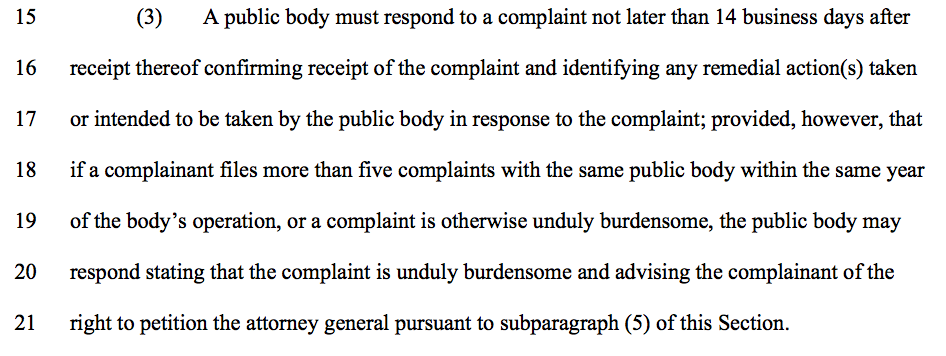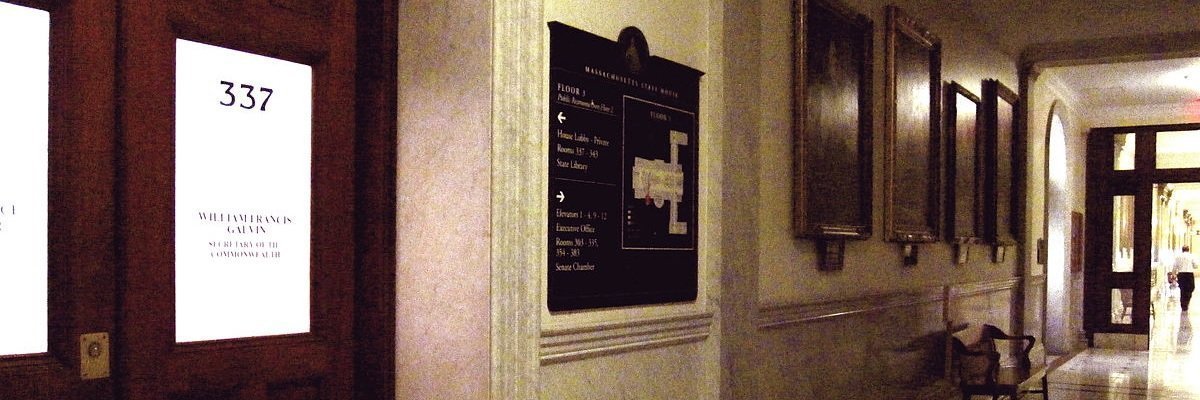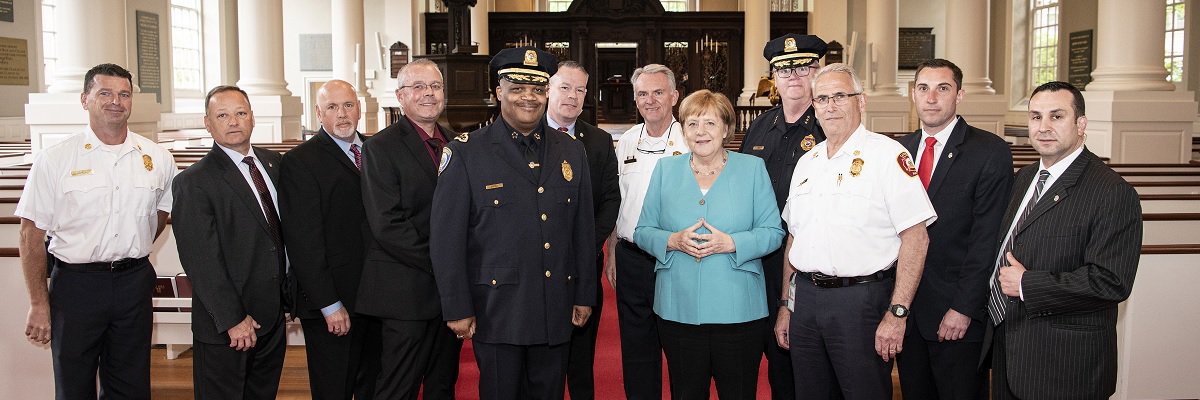A new two-fold bill in Massachusetts hopes to set a new standard for frivolous complaints in the state as well as address records requests intended to harass agencies.
The proposed legislation, Bill HD 1845, was introduced by State Representative David Linksy (D-Natick) and addresses complaints of Open Meeting Law violations as well as frequent public records requests labeled as “frivolous” or “vexatious.”
“This legislation aims to close the loopholes used to file frivolous and harassing OML complaints and Public Records requests, which cause disruption to cities and towns and cost taxpayers thousands of dollars” said Representative David Linsky (D-Natick). “Cities and towns in my area have been subjected to harassment by a small number of individuals who have filed literally hundreds of harassing complaints and requests, shutting down important town business.”
More specifically, the first part of the bill looks to let any person file an OML complaint within 20-days of the alleged violation, a change from the currently held 30-day timeline. Additionally, the public body would have to respond within 14-days of the filed complaint, unless the complainant has filed more than five complaints with the same public body within the same year, or a complaint is otherwise categorized as “unduly burdensome.”

Records requests seen as “frequent” or “frivolous” are heavily threatened. The last paragraph of the bill hopes to strip the Supervisor of Public Records requirement to find “broad dissemination of information to the public” in these types of appeals. The SPR is the supposedly “neutral party” in Massachusetts records disputes, which, if the bill passes, would have a higher obligation to side with local agencies since it wouldn’t have to find broad dissemination in these cases.

However, transparency advocates say the bill raises concerns and they hope to work with sponsors and the committee to “get it right.”
“The public’s right to information is paramount and any changes must be surgical and not impair the rights of the press and the public to obtain information about what our government is doing,” said the Executive Director of Common Cause Massachusetts, Pamela Wilmot.”
Currently, Massachusetts Public Records Law does not place guidelines on what constitutes a frivolous request, therefore granting an added level of flexibility for local agencies to determine how many requests are considered frequent requests or intimidating. The law favors local agencies, as the SPR would no longer have to find that the request was intended for broad dissemination.
“Natick is one of several area towns that have received hundreds of harassing and frivolous Public Records requests and Open Meeting Law complaints from a small group of individuals. These requests, even though they have been found to be filed for the purposes of intimidation and harassment, must be answered because of a flaw in the law as it is currently written,” added Linksy.
Last year, the Natick School Committee saw over 600 Open Meeting Law complaints filed by Wellesley resident, Ron Alexander. The complainant claims the committee violated the OML in several ways, including failure to release meeting minutes and not posting names of all parties in collective bargaining negotiations during executive session minutes. However, the school committee claims no laws were broken.
“The changes made by this legislation provides a needed structure to the complaint and petition process to generate efficiency in Open Meeting Law compliance,” added Linksy.
“This legislation corrects that flaw.”
The full bill is embedded below.
Have you been called a “frivolous” requester by Massachusetts agencies? Let us know via the form below! In the meantime, take a look at these related headlines:
Image by M2545 via Wikimedia Commons




